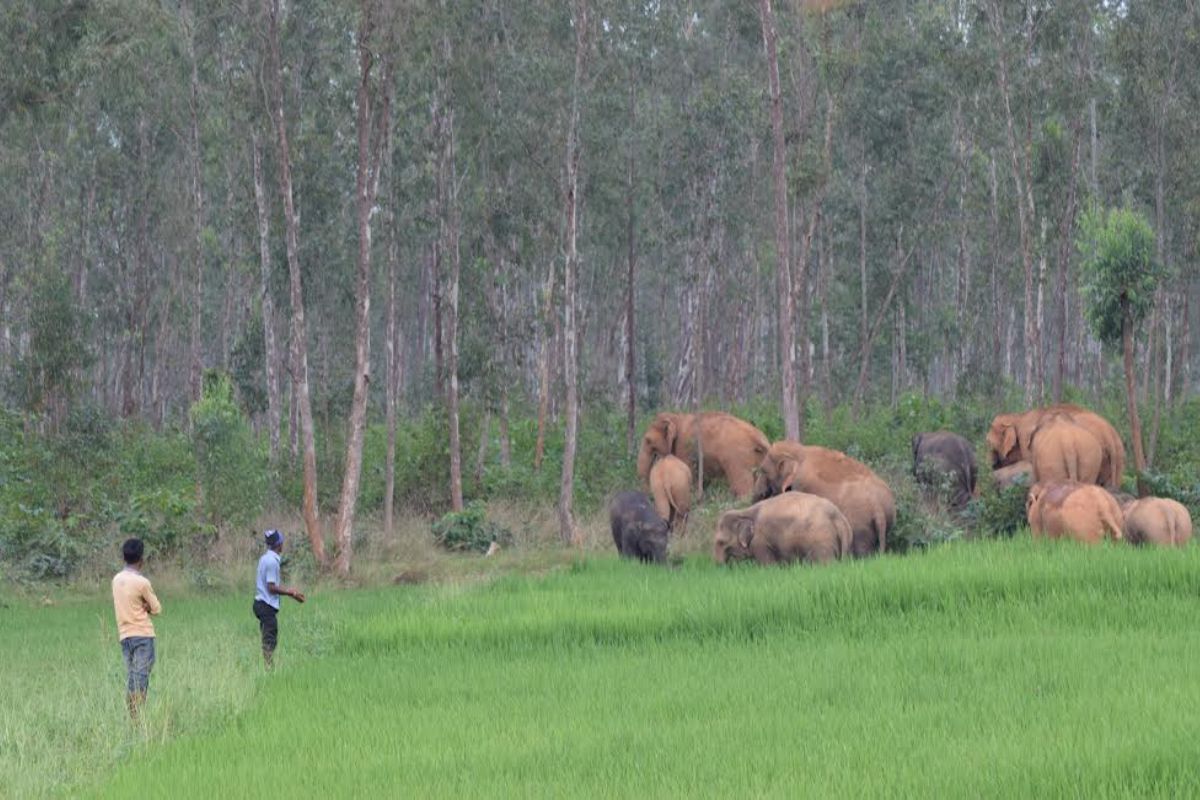The Dhenkanal parliamentary constituency endowed with minerals and forest resources with industrialization has often grabbed headlines for human-elephant conflict. This elephant depredation causing loss of life and property is a burning electoral issue in villages badly hit by straying of wild elephants.
The elephant menace is one the issues that candidates confronted in forest-side villages as the campaigning ended on Thursday for the polls, said poll analysts.
Advertisement
The Dhenkanal Lok Sabha seat, from where the Congress has won eight times followed by five victories by the Biju Janata Dal (BJD), is witnessing a contest mainly involving BJP candidate and former Rajya Sabha member Rudra Narayan Pany, BJD’s Abinash Samal and Congress nominee Sashmita Behera. Both Samal and Behera are making their debut in the Lok Sabha polls.
This parliamentary constituency, comprising Dhenkanal, Hindol (SC), Kamakhyanagar, Parjanga, Pallahara, Talcher, abd Angul assembly segments, is going to polls on May 25 in the third phase of the simultaneous election in the state.
The constituency, which is grappling with underdevelopment, distress sale of agrarian produce, skeletal irrigation network, industry-induced pollution and large-scale unemployment, often grabs the spotlight for man-elephant conflict. Acts of elephant depredation is almost a daily ritual in several areas of this constituency.
Voters in the affected areas seek safety of their lives from marauding elephants. Basic needs of human lives affect them like people of other places. But threat posed to their lives by the elephants is worrying them the most than anything else.
Man-made obstructions like the Rengali irrigation canal network, national highways and the frequent movement of trucks in and out of industries and quarries, are hindrances to hassle-free movement of the elephants. As a result, it is leading to frequent outbreak of man-jumbo conflict in Dhenkanal district, which is the worst-affected region due to elephant depredation, said conservationist Biswajit Mohanty.
Shortage of fodder in the natural forests was the main cause for elephants venturing into human habitations. The shortage happens primarily due to large scale felling of trees for timber, forest fires, rampant harvesting of fruits in summer, and cutting off fodder creepers like Siali, he added.
Since the 2019 polls, Dhenkanal has accounted for around 100 human deaths due to elephant deaths. Hundreds of acres of croplands were damaged by the marauding pachyderms. The government extends Rs 6 lakh ex gratia for human fatalities arising out of conflict with wild animals, including elephants.
The amount of assistance in case of loss of rice and other food grains (cereal) being given by the government for elephant depredation ranges from Rs 10,000 to Rs 20,000 per acre. In the case of cash crop damage, the amount of assistance has been fixed at Rs 25,000.
The majority of human death due to attacks by wild animals is reported due to man-elephant conflict, which has assumed alarming proportions over the years. As many as 925 people perished and 212 were rendered permanently disabled in man-elephant conflicts in the state in the past decade.











